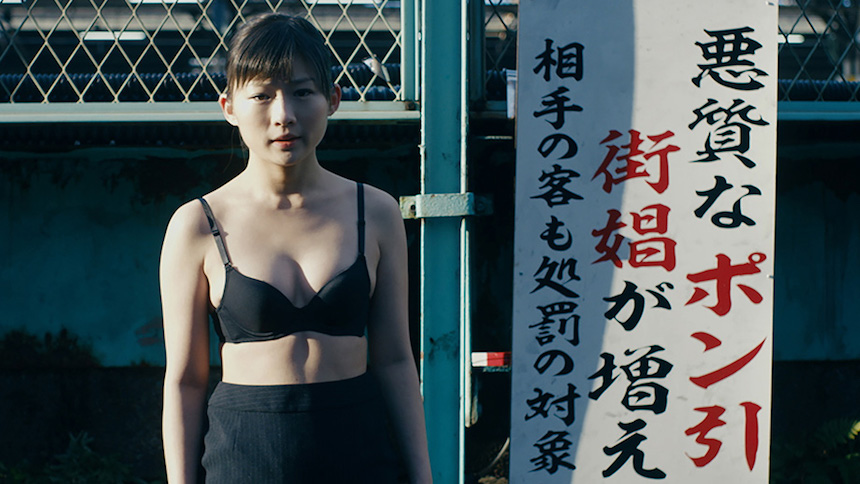Japan Cuts 2020 Review: LIFE: UNTITLED Explores Humanity in Lower Depths

One can't go without mentioning Mizoguchi's superb melodrama, Street of Shame (1959), when we talk about films about sex workers. Like Street of Shame, where there were five different individuals with their own stories to tell, Yamada Kana's Life: Untitled manages to tell a group of people, men and women, engaged in a ramshackled escort business. Adapting her own play in her debut film, Yamada weaves stories of empowerment, identity, misogyny, gender roles and how bottled-up sadness and anger materialize in the form of sociopathic behavior and violence. She also shows wealth of humanity in each character and brings out compassion and understanding. Not unlike Mizoguchi's film, Life: Untitled is a deeply moving film and sympathetic look at the world's oldest profession in modern Japan.
The film starts with Kano (Ito Sairi)'s voice over: she is a girl tired of leading ordinary life and down on her luck. She wants to give her life meaning, somehow. Then she ends up interviewing for a job at an escort service run by ruthless Yamashita. Kano has absolutely no qualifications for the job, as far as her resume is concerned. But she is up for anything, ready to challenge herself. But on her first assignment, Kano is grossed out by a horny client, fights him off in the hotel room and runs out to the street with only her bra on. After that, she is assigned to an office duty. She then becomes the fly on the wall for us.
The office, where girls hang out while waiting to be called and interact with each other, becomes a main stage for Life: Untitled. There is Mahiru (Tsukematsu Yuri), an always smiling, sweet girl and clients' favorite, Atsuko (Satsukawa Aimi), who always whines and complains, Kyoko (Morita Kokoro) who is helplessly in love with brutish Ryota, the company driver, Shiho (Nozaki Tomoko), an older woman who keeps to herself and Chika (Yukihira Aika), a loner who scribbles in her diaries in the corner everyday. They all have part of their stories played out.
Girls gaggle and play around in the office but also tempers fly for the smallest things. As with any profession, there are good sides and bad sides. With their profession, it's how well they keep its depressing bad side hidden to function. There are emotional blow-ups and threat of violence. Things boil up to the surface.
There are many poignant moments but the most touching episodes are one with Kyoko and Ryota. No matter how much he abuses her, Kyoko looks through Ryota's tough guy façade and sees him for what he is, a scared little boy who needs to be taken care of. It shows Kyoko isn't some mindless prostitute with masochistic tendency but sees in him the exact same qualities as herself, that they are made for each other. It's real pleasure to see their transforming relationship through out. Another is smiling Mahiro. Her sweet girl façade hides the sadness inside her and brings out pyromaniac in her. She wants to burn the whole Tokyo to the ground. She wants to burn it all down. Catharses small and big for these characters are movingly captured near the end, like a collective therapy session, reminding you of the ending sequence in Kieslowski's Blue, where camera hovers on each characters' lives.
Ito Sairi with her small figure with an improbably husky voice is a force to reckon with. Her physicality and presence anchors the film from hurtling away with multiple storylines. As well as being our eyes and ears, she stands firm as the moral core of the film, quietly managing everyone around her and brings out their stories.
Life: Untitled, with superb acting and energetic direction, reflects on the bittersweet lives of these affable characters on the bottom rung of the society. Highly recommended.
Japan Cuts 2020 is streaming! Please visit Japan Society website for tickets.
Dustin Chang is a freelance writer. His musings and opinions on everything cinema and beyond can be found at www.dustinchang.com







